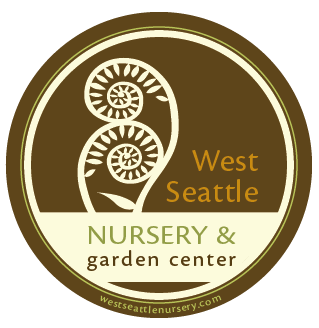Celebrating Oak-tober: Planting Oaks for a Greener Future
“I grew up in Northern California and spent my childhood climbing the Live Oaks of northern California and thus have always had an affinity for the oak trees. During my tenure as Pacific Connections Horticulturist at the UW Botanic Gardens, my favorite region was Cascadia and my favorite trees were always the oaks and the tanoaks including Quercus vaccinifolia, Q. kelloggii, Q. chrysolepis and Q. chrysolepis, and notholithocarpus species."
— Kyle, Deciduous Tree Buyer at West Seattle Nursery
As Kyle shares her heartfelt connection with oak trees, we are reminded that sometimes the love for a particular plant can be deeply personal. Oak trees have an extraordinary ability to inspire such devotion, and as we step into the month of Oak-tober, it's the perfect time to explore the significance of these majestic trees in our lives and the environment.
A Haven for Life
Oak trees are considered a Keystone species. Keystone plants are natives that are essential to our ecosystems because they support 90% of the caterpillar species that enable our terrestrial birds to reproduce, as well as all of our specialist native bee species. Oaks, more than any other North American tree genus, are bustling hubs of life. They offer food, shelter, or both to an astonishing variety of creatures, from birds to bears, insects to spiders. The diverse web of life they support is a testament to their ecological importance. Planting oaks isn't just about adding greenery to our surroundings; it's about nurturing entire ecosystems.
Bringing the Oaks to the City
Planting oak trees in urban areas offers a myriad of benefits, making them an excellent choice for city landscapes.
Source: mast-producing-trees.org
Shade and Energy Efficiency: Oaks provide much-needed shade for houses and people. This natural cooling effect reduces energy needs for air conditioning, making our homes more energy-efficient and eco-friendly.
Air Quality Improvement: Through photosynthesis, oak leaves absorb carbon dioxide and release oxygen, contributing to improved air quality. They also filter out airborne pollutants, enhancing the overall environmental health of our cities.
Wildlife Habitat: Oaks are vital for our feathered friends and beneficial insects. By planting oaks in your city, you create essential habitats for these creatures, fostering urban biodiversity.
Drought Tolerance: As our climate continues to warm, drought-tolerant plants become increasingly important. Oaks, once established, are remarkably drought-resistant, making them a resilient choice for our ever-changing climate.
Fall Splendor: Many species of oak dazzle us with their brilliant fall foliage. The vibrant reds, oranges, and yellows of their leaves add a touch of seasonal magic to cityscapes. They are among the last trees to lose their leaves, providing shade and delightful scenery till frost.
Soil Tolerance: Oaks are adaptable and can thrive in various soil types, including sandy soils. This versatility makes them suitable for a wide range of urban environments.
Supporting the Circle of Life: By planting oaks, you become a part of a greater cycle, one that sustains life in all its forms, from the tiniest insects to the grandest trees.
This Oak-tober, let's honor these remarkable trees by embracing their place in our cities. As we plant oaks, we plant hope for a greener, healthier future, where nature thrives alongside us. Join us at West Seattle Nursery in celebrating Oak-tober, and let's take a step towards a brighter, more sustainable tomorrow, one oak tree at a time.



